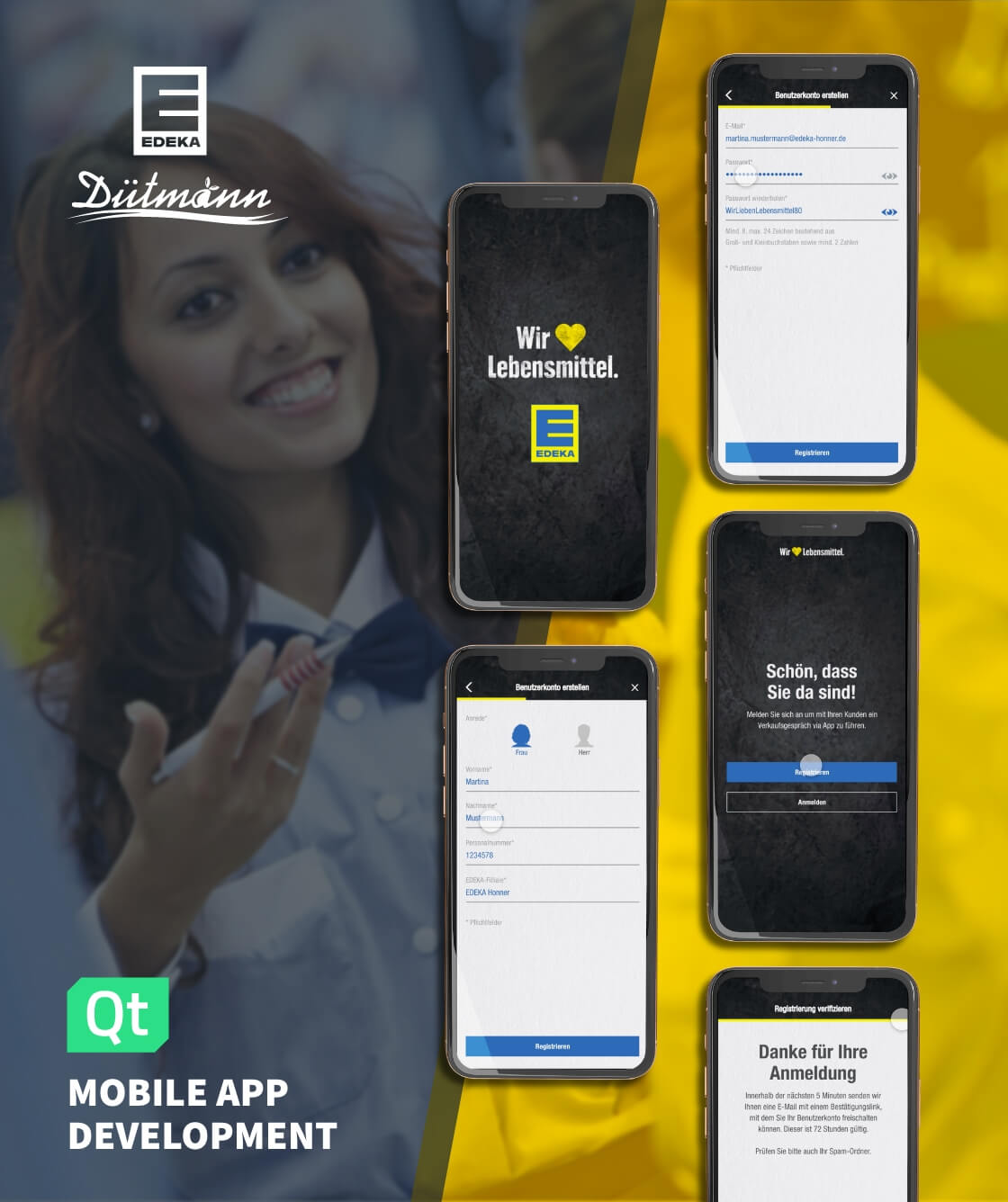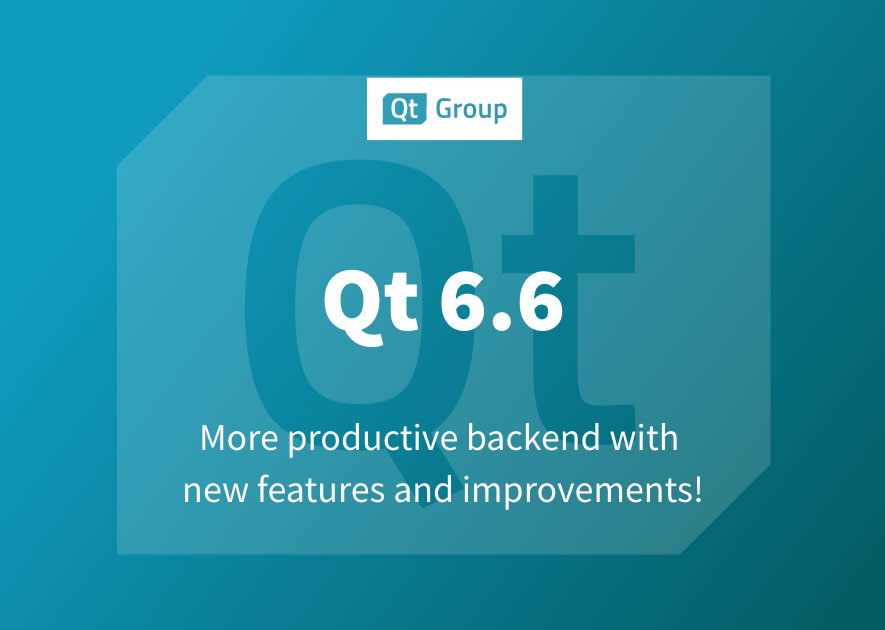✓ Scalability
Qt’s platform-independent approach provides the flexibility to respond to change. Over the course of a product’s lifecycle, technology changes may require a change in either operating system or hardware platform. This migration is much easier with Qt than with other frameworks, saving significant development time and resources.
✓ Fast time to market
From mock-up and prototyping to implementation and testing of the first software version, all steps of the development process must be as efficient as possible to minimize costs and time-to-market. Qt makes it easy for interdisciplinary teams to work together in a development environment. Designers, developers, translators, and other stakeholders communicate in the shortest paths and in the same language. Developers can release mockups and prototypes faster with Qt, and the number of iteration loops can be significantly reduced.
✓ Reduced cost of ownership
Qt’s platform independence and use of common development tools significantly reduces development costs and speeds time to market. As a result, the total cost of ownership is very low, and investments in new products and enhancements are quickly recouped.
✓ Reducing Hardware Complexity
When developing embedded systems, it is important to keep costs down in order to offer competitive prices. The powerful software components provided by Qt reduce the hardware requirements, which in turn reduces the cost of the overall product.
✓ Qt Performance
Based on the C++ programming language, this software framework is a high-performance, platform-independent toolkit that can be used to implement user interfaces and back ends. User interfaces developed with Qt require significantly less processing power than other toolkits, making them ideal for battery-powered and more compact devices. Device interactions are also expected to be fast and reliable.
✓ Wide range of applications
Qt is used in more than 70 industries and can be applied to smart and mobile devices as well as to control complex industrial machinery. It is certified to international safety standards and can be used in highly regulated environments with many regulatory requirements. Additional tools, protocols, and libraries built into Qt Creator address the specific needs of the automotive, automation, and healthcare industries.
















